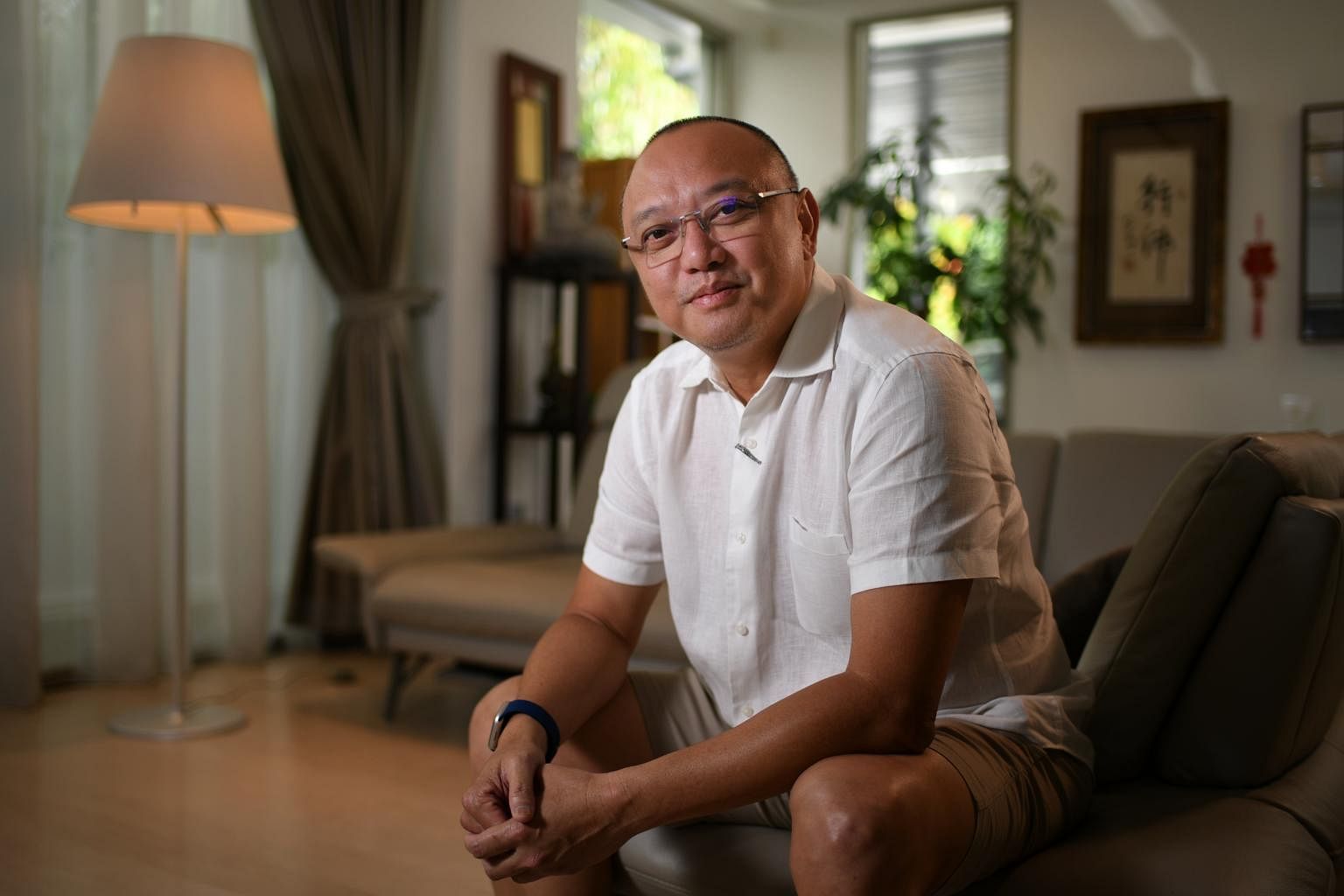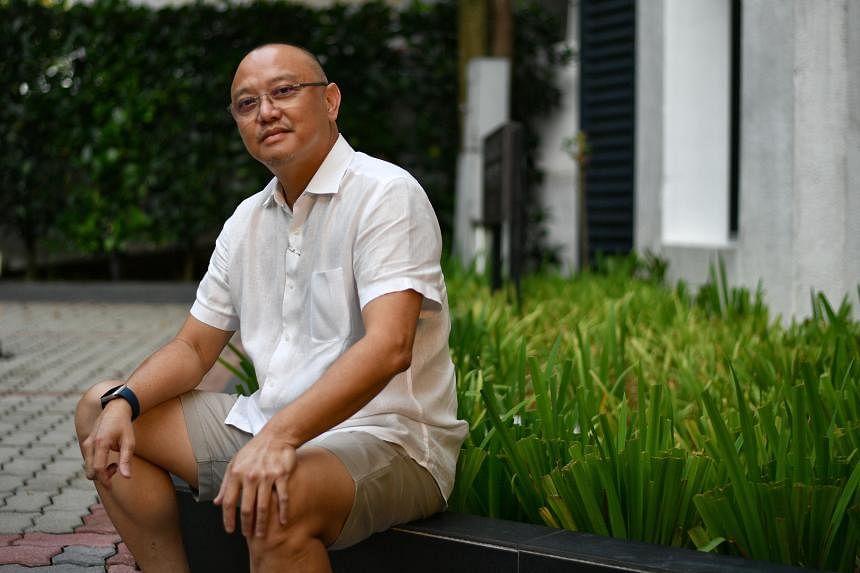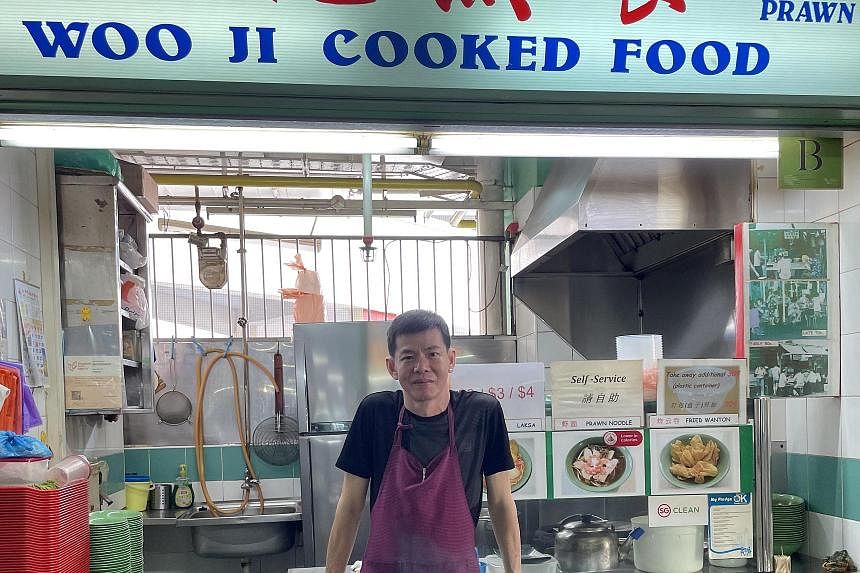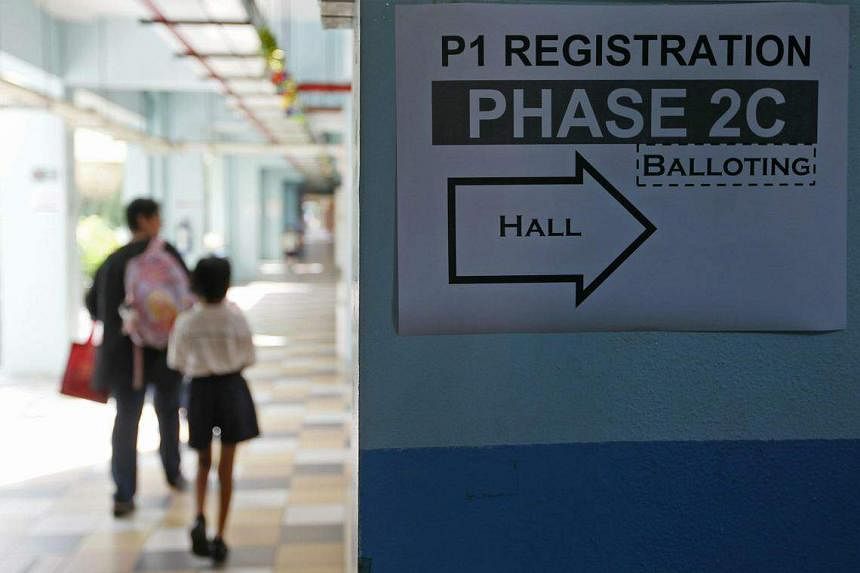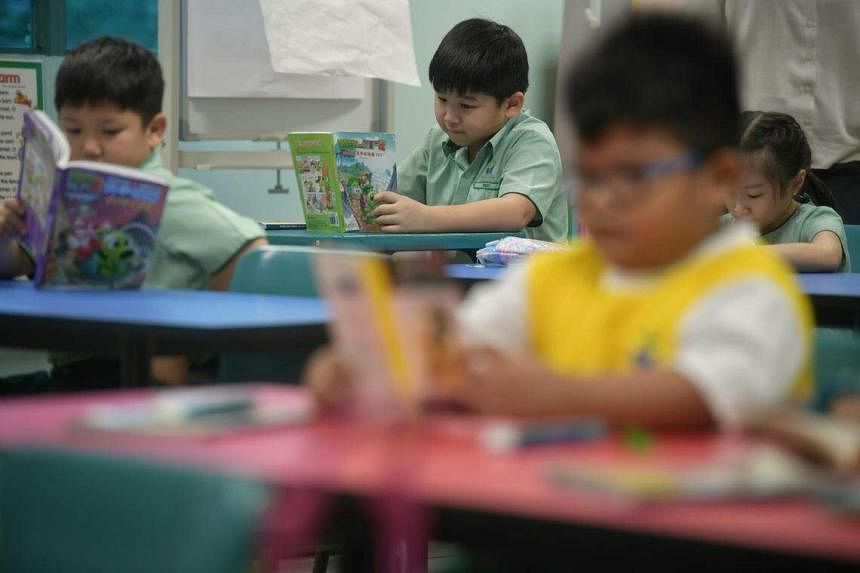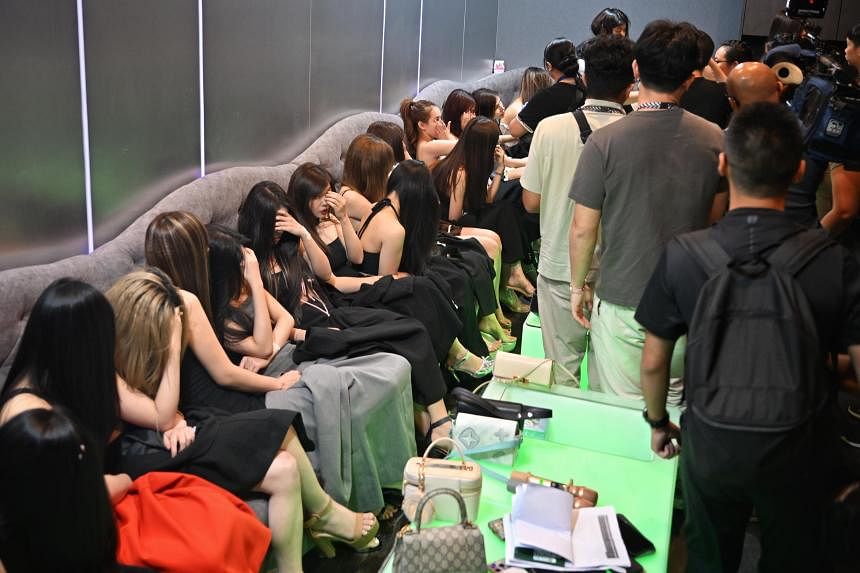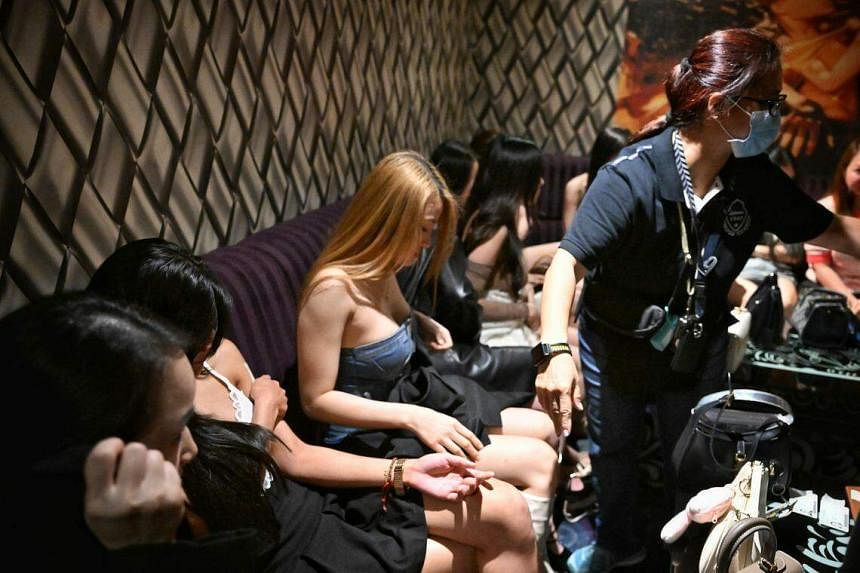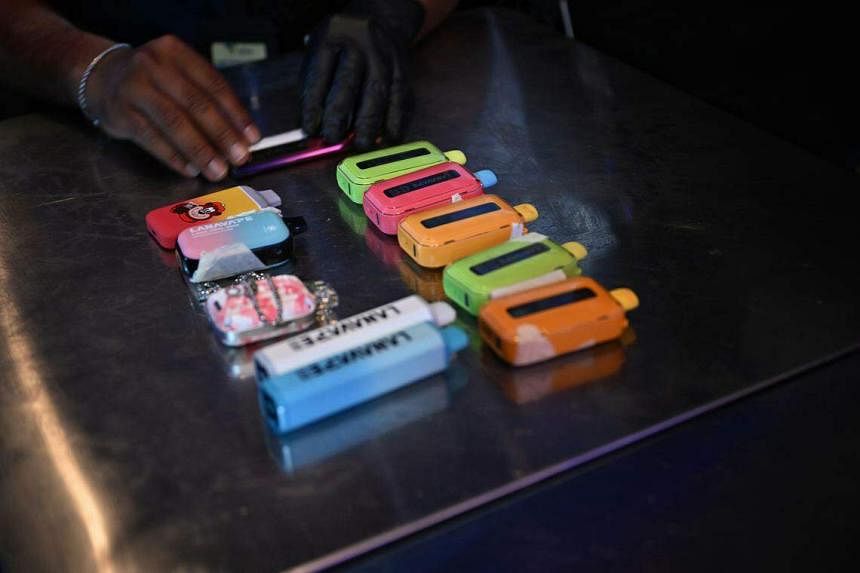Serial do-gooder pays for the funerals of strangers
Anson Ng, who owns a second-hand car dealership, cooks for the terminally ill and goes out of his way to help the elderly and the needy.
Wong Kim Hoh
Deputy Life Editor
SEP 18, 2022
SINGAPORE - Madam Aton Bibi Raj Mohamed is getting emotional on the phone talking about a man she calls Boss.
"I've never met anyone like Anson," says the 49-year-old part-time hospital worker.
She is referring to serial do-gooder Anson Ng, a stranger who popped into her family's life after her husband Abdul Aziz bin Mohamed Abdul Karim was diagnosed with Stage 4 lung cancer in June last year. A family friend told the couple he knew a kind Chinese man who often helped strangers, and made the introductions.
Mr Abdul Aziz - who also had 12 tumours in his brain - died three months ago. But in the 12 months before the 47-year-old former bus driver succumbed to his illness, Mr Ng took him to another hospital for a second opinion, drove him to medical treatments and appointments, visited his family regularly and helped them out financially.
"When my husband was critical, he was the first one at the hospital, before any relative. And when my husband died, he passed me $2,000 for the funeral," says Madam Aton.
Mr Ng's generosity, she says, did not stop there. After her husband's death, he bought insurance plans - with monthly premiums of $300 - for her two sons, aged 11 and 13.
"He pays $200, I pay $100. He told me I have to take good care of my children. He takes them out for meals to find out how they are doing.
"Saya berterima kasih kepada Tuhan sebab ada peluang jumpa orang macam Anson," she says, lapsing into Malay, thanking God for bringing such a good Samaritan into her life.
Asked why he helps strangers, Mr Ng - who owns second-hand car dealership Presto Expat Motoring Services - says simply: "Whether you are rich or poor does not matter. What matters is if you have a heart."
I met Mr Ng three years ago, introduced by a doctor friend who wanted me to profile a selfless man who cooked for the terminally ill and went out of his way to help the elderly and the needy. He was, he said then, not used to the limelight, and not ready.
But Hao Ren Hao Shi (Good People, Good Deeds), the ground-up movement he started in 2018 to distribute monthly provisions to the needy, has been gaining traction, especially among students in neighbourhood schools, and he wants more to discover the joy of doing good.
From 100 families, Hao Ren Hao Shi - which boasts more than 300 volunteers and was registered as a charity a few months ago - now distributes more than 25 grocery and other essential items every month to 1,000 needy households all over the island.
Straight-talking and energetic, with a tendency to break into loud chortles, the 55-year-old radiates yi qi - the spirit of loyalty, friendship and self-sacrifice often celebrated in Chinese martial arts novels and gangster flicks. His life would have made rich fodder for a drama series.
He has been told that he was born in Bangkok, smuggled into Malaysia and then sold to a taxi driver and his wife who had six daughters but longed for a son.
"I was a parallel import, no original engine certificate," quips the used-car businessman.
Mr Anson Ng has funded the funerals and last rites of more than 100 needy folks since he started volunteering. ST PHOTO: CHONG JUN LIANG
Life was hard for the family living in a one-bedroom flat in Jalan Besar.
Dumplings and durians were rare treats. Once in a blue moon, his father would give Mr Ng five cents to buy a roti prata.
"If his mood was right and if got eggs in the house, I could take one and ask the prata man to add it in," he says in a mixture of Mandarin and Singlish.
When he was nine, his adoptive father hanged himself with his belt. "I was the one who discovered the body and I can still remember everything, even the colour of the shirt he was wearing," says the former student of Siglap Primary School and Serangoon Garden Technical School.
Neighbours said that his adoptive father was "mad" but Mr Ng realises now his old man probably suffered from depression.
Although they received help from a kind maternal uncle, Mr Ng started working various part-time jobs - among them, coffee-shop assistant, caddy and hotel waiter - so that the family could make ends meet.
Academically weak, he enrolled, at 16, in the Singapore Armed Forces Boys' School, set up by the late Dr Goh Keng Swee to offer free education, meals and accommodation to boys aged between 14 and 17.
After signing up as an army regular, he was deployed to the Special Investigation Branch (SIB).
"My English was bad and I couldn't write reports but I was very good at catching people. I liked fighting especially gangsters because I hate those who bully the weak," he says.
A few years later, he left the SIB to join a friend to sell rubbish bins. A humiliating incident rattled him but also spurred him to make something of his life.
An executive from an Orchard Road shopping mall berated Mr Ng loudly in public after he delivered an order of refuse bins.
The man - who emphasised he was a graduate - was angry that the branding of the mall on the bins was not prominent enough.
"It was not my fault. I was just delivering the bins but he said: 'I've never seen anyone so stupid in my life. You're so stupid that even if I gave you 10 years, you'd not amount to anything.'
"I said to myself: 'I'll remember your face, I'll remember your car number. One day, when I'm successful enough, you will see me.'"
Pupils, parents and teachers of Lianhua Primary School beavering away earlier this year at packing groceries and essential items for distribution to the families of needy pupils in the school. PHOTO: ANSON NG
For some time, a businessman had been cajoling him to become a used-car salesman in his company Hui Teck Vehicle Trading. Mr Ng took up the offer, and started learning the ropes of the trade.
"He was a very decent man and I learnt a lot from him," he says.
Patience and hard work - "I worked Monday through to Sunday" - stood him in good stead. Seven years later, he had saved up more than $200,000 to start his own used-car business Presto Motoring in 1996.
"I started by buying three cars, then four," says Mr Ng who was by then married to an IT executive with whom he has two children, aged 27 and 29.
"The business slowly grew. I could even hire graduates," he says with a grin.
Noticing a gap in the market, he rebranded Presto Motoring as Presto Expat Motoring Services in 2007, catering to the expatriate market. Besides selling vehicles, his company even conducted workshops on the dos and don'ts of driving in Singapore for expatriates.
In 2001, healthcare pioneer Uma Rajan, 82, bought a Volvo from him. The two struck up a friendship and Dr Rajan - the former director of eldercare and school health services at the Ministry of Health - roped him in to help out at the Mun Fatt Tong Nursing Home. It changed his life.
"Dr Uma Rajan gave me a chance to do good," he says, referring to the woman he now calls Ma.
He started by sponsoring meals and organising outings - sometimes chartering up to five buses with medical staff such as nurses and physiotherapists in attendance, and even an ambulance on standby - for the elderly in old folks' homes.
Dr Rajan says: "He was really struck by the problems old folks were going through and started feeling the urge to be involved. He has the same multi-ethnic approach as I do - it doesn't matter what ethnic group or religion, you can depend on him to help."
The community leader - who helped to set up nearly a dozen elderly care centres with voluntary welfare organisations - later introduced him to other charities, including Dover Park Hospice and HCA Hospice Care.
That was how Mr Ng started cooking, with the help of volunteers, elaborate meals twice a week - on Tuesdays and Fridays - for the terminally ill at these two places.
"I did all the marketing myself and made sure the meals were colourful, to cheer them up," he says, adding that he spared no expense in buying fish, prawns and other ingredients because the meals could be the last for some of the patients.
Mr Ng serving the packed food that he cooked and prepared with volunteers to a terminally ill patient at Dover Park Hospice in December 2017. PHOTO: ST FILE
Some people have told him he should help the young and ill instead of the old and dying.
"Every human is a life. You need to respect everyone. That's why I really respect the palliative doctors who are out there doing such good but difficult work," he says simply.
The families of some of these terminally ill patients were so poor that they could not afford to pay for the funerals or last rites when their loved ones died.
He started stepping in to help, and has not stopped. He frequently gets calls from doctors and medical professionals alerting him to needy cases.
"I put my heart into helping the dying because the dying will not lie to me. I'm just helping them fulfil their last wish and giving them some dignity," says Mr Ng, who reckons he has funded the funerals and last rites of more than 100 needy folks since he started volunteering.
The cooking - which was done in the kitchen at the former HCA in Jalan Tan Tock Seng - stopped when HCA moved to its new premises, Kwong Wai Shiu Hospital, which has no central kitchen, in 2018.
He started Hao Ren Hao Shi after non-profit organisation Apex Club approached him to support its monthly distribution of provisions to needy households in Redhill.
As word grew of this volunteer extraordinaire, who won the Silent Hero 2021 Award presented by the Civilians Association of Singapore, more volunteers, including expatriates, joined the movement.
The number of benefiting families has grown tenfold in the last four years. The number of grocery items and essentials - which are distributed on the first Saturday of each month - has also increased from less than 10 to nearly 30.
"Items are getting more expensive, and the number of families we are helping is growing. We welcome any help we can get," he says.
Every distribution exercise is executed with clockwork precision, with items neatly laid out on multiple tables at different stations, and volunteers organised in different groups. All donations are clearly accounted for, and receipts given to donors.
"Transparency is very important," says Mr Ng who reckons he spends more than $10,000 of his own money every month to do what he does.
He is especially chuffed that the movement has spread to neighbourhood schools. The first was Lianhua Primary, which got him on board two years ago to train pupil and teacher volunteers so that they could conduct their own monthly provisions distribution to the families of 100 needy pupils in the school.
"I now have parents complaining and asking why they can't volunteer alongside their children," he says, laughing.
At least half a dozen neighbourhood schools have followed suit, including West Spring Primary, Northbrooks Secondary and St Stephen's School. River Valley Primary will come on board soon, ditto Temasek Polytechnic.
"It's so wonderful to see the young learning how to serve their peers, and being exposed to those who are less fortunate. It's invaluable education," he says.
The Buddhist hopes everyone will learn to pay it forward.
"You cannot bring your money with you when you go so when you're alive, why not do some good?"


